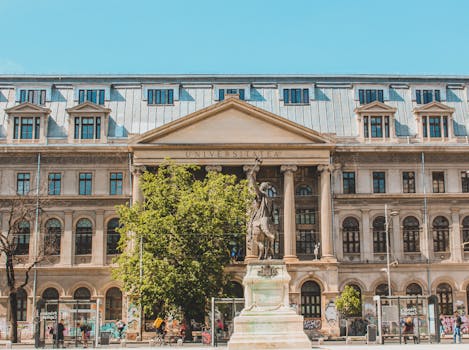
Traveling Through Time: How Europe’s Historical Heritage Shapes Modern Lifestyles in 2025
Traveling Through Time: How Europe’s Historical Heritage Shapes Modern Lifestyles in 2025. Europe, a continent steeped in history and heritage, has a profound impact on modern lifestyles. From the intricate architecture of ancient buildings to the vibrant art scenes, Europe’s past continues to shape its present. In this article, we will delve into the ways in which Europe’s historical heritage influences modern lifestyles, making it a fascinating destination for travelers and a unique place to live.
Architecture and Urban Planning
Europe’s historical heritage is perhaps most evident in its architecture. From the grandeur of Rome’s Colosseum to the elegance of Paris’s Eiffel Tower, iconic landmarks have become synonymous with European culture. These structures not only attract millions of tourists each year but also influence modern urban planning. Many European cities have incorporated their historical architecture into contemporary designs, creating a blend of old and new that is distinctively European. For example, the historic city center of Florence, Italy, is a UNESCO World Heritage Site, with its narrow streets and medieval buildings carefully preserved and integrated into the modern cityscape.
Art and Culture
Europe’s historical heritage has also had a profound impact on its art and culture. The continent is home to some of the world’s most renowned museums, such as the Louvre in Paris and the Uffizi Gallery in Florence. These institutions showcase an incredible array of artistic treasures, from Leonardo da Vinci’s Mona Lisa to Michelangelo’s David. European art has continued to evolve, with modern and contemporary artists drawing inspiration from the past. The street art scene in cities like Berlin and Barcelona is particularly vibrant, with artists using historical buildings and landmarks as their canvas.
Cuisine and Gastronomy
European cuisine is another area where historical heritage has had a lasting impact. Traditional dishes like Italian pasta, Spanish tapas, and French escargots have been passed down through generations, with each region boasting its unique flavors and ingredients. Modern European cuisine has incorporated these traditional elements, with chefs experimenting with new techniques and ingredients while remaining true to their heritage. The concept of gastronomy, which originated in 18th-century France, emphasizes the importance of food as a cultural and social experience. This approach to cuisine has become an integral part of European culture, with many cities hosting food festivals and events that celebrate their local specialties.
Modern Lifestyles and Traditions
Despite the many advances of modern technology and globalization, European lifestyles and traditions remain deeply rooted in their historical heritage. Many Europeans continue to observe centuries-old customs and practices, such as the Tomatina festival in Spain and the Carnaval in Venice. These events not only provide a glimpse into the past but also serve as a testament to the enduring power of European culture. In addition, the concept of work-life balance, which is deeply ingrained in European culture, is often attributed to the historical emphasis on leisure and enjoyment. The idea of taking time to appreciate the finer things in life, whether it’s a glass of wine or a beautiful sunset, is a quintessentially European attitude that has been passed down through the ages.
Conclusion
In conclusion, Europe’s historical heritage continues to shape modern lifestyles in profound ways. From architecture and art to cuisine and traditions, the continent’s rich history has left an indelible mark on its culture. As we look to the future, it is clear that Europe’s heritage will remain an essential part of its identity, influencing the way people live, work, and interact with one another. Whether you are a traveler, a student, or simply someone who appreciates the finer things in life, Europe’s historical heritage is sure to captivate and inspire, offering a unique perspective on the past, present, and future.






